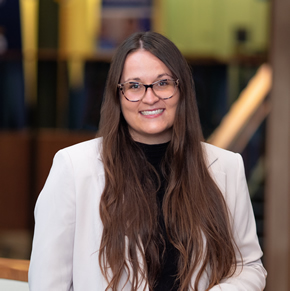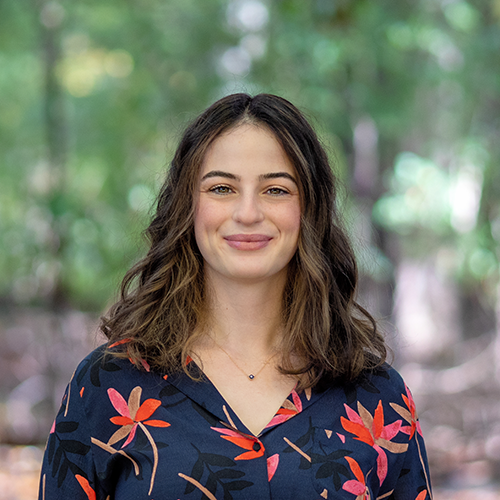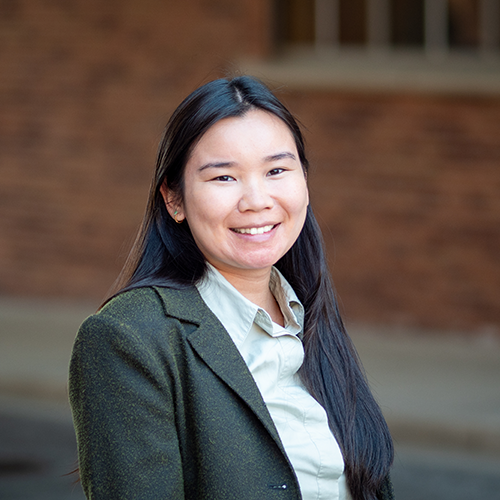Michigan’s longstanding history of toxic environmental exposures and environmental injustice

Kandyce Keller, Lilah Khoja, and Sailing Tang
Research staff, Michigan Cancer and Research on the Environment (MI-CARES)
As you drive past smoke plumes billowing out of oil refineries and manufacturing plants, inhaling the air that surrounds you, do you wonder what you are breathing and how that impacts your overall health? What thoughts run through your head as you pass by warning signs posted along the riverbanks that feed your freshwater drinking sources? In the state of Michigan, these experiences are not a rarity. In fact, for some communities, these toxic exposures are part of one’s daily existence. Let’s dig into the longstanding history of these toxic environmental exposures in Michigan and what a research team from the University of Michigan School of Public Health are doing to address the situation.
What is the history of toxic environmental exposures and environmental injustice in Michigan?
Over the last century, Michiganders have been repeatedly exposed to toxic environmental pollutants during events where governmental policies and systems failed to protect the health and human rights of the community. These events include the corrosion of lead pipes into the water systems during the Flint water crisis, dairy cattle contaminated with polybrominated biphenyls (PBBs), freshwater lakes and rivers filled with per- and polyfluoroalkyl substances (PFAS), major industries polluting the air in the Detroit Metro district as well as other major cities, and most recently the hexavalent chromium spillage into the Huron River [1-5].
While some of these events were met with immediate action to minimize exposures, other potential hazards such as industrial air pollution and water laced with PFAS have continued to persist. Little to no action has been taken to stop these events from occurring at the population level, which is why researchers from Michigan Public Health launched a new study to gain the evidence needed to advocate for policy change to improve the health and wellness of Michiganders.
What is MI-CARES?
The Michigan Cancer and Research on the Environment Study (MI-CARES) is a new project by a team of cancer epidemiologists and environmental health researchers at Michigan Public Health and the University of Michigan Rogel Cancer Center. Recruitment and community engagement activities for the study started in June 2022, with the goal of recruiting 100,000 Michiganders between the ages of 25 to 44 years old over the next six years. The overarching goal of MI-CARES is to quantify the impact the environment has on human health in the state to ultimately influence policy-level change that prioritizes the health of individuals over private industries and enterprises.
Our team is specifically interested in understanding how environmental exposures such as heavy metal contaminants and PFAS in the air and water affect cancer risk. This year, our team prioritized establishing strong connections with community organizations to sustain long-lasting networks that are invested in creating a healthier world for future generations. We have volunteered at local nonprofits and attended community events to share information on the study and bring awareness to these issues. We hope to continue to expand our community outreach and connections to support our mission and to compile meaningful data and draw conclusions that can impact change across the state.
What are the benefits of conducting this research?
As epidemiologists and environmental health researchers, we want to let the data tell the story of the health of our communities. Past large cohort studies also have been monumental in finding associations between exposures and health risks, such as smoking and cardiovascular disease from the Framingham Heart Study [6]. MI-CARES is the first statewide study of its kind to investigate environmental exposures on health risks specific to residents and their history. Additionally, many of our participants can better understand their personal health history when completing our questionnaire.
In the field of environmental epidemiology, we define the “exposome” as all of the exposures an individual encounters. In this study, participants reflect on personal care product usage, occupational exposures, family history, and other facets of their life relating to the exposome. This profile is an opportunity for participants to reflect on their exposure history and better understand how they can protect themselves and take back their health choices.
MI-CARES has the potential to change the health and environment for future generations of Michiganders and inspire global efforts in environmental justice acting as a ripple effect.
References:
[1] B. F. O’Leary et al., “Air quality monitoring and measurement in an urban airshed: Contextualizing datasets from the Detroit Michigan area from 1952 to 2020,” Science of The Total Environment, vol. 809, p. 152120, Feb. 2022, doi: 10.1016/J.SCITOTENV.2021.152120.
[2] S. J. Masten, S. H. Davies, and S. P. McElmurry, “Flint Water Crisis: What Happened and Why?,” Journal - American Water Works Association, vol. 108, no. 12, p. 22, Dec. 2016, doi: 10.5942/JAWWA.2016.108.0195.
[3] Michigan Department of Community Health (MDCH), “PBBs (Polybrominated Biphenyls) in Michigan,” 2011. https://www.michigan.gov/-/media/Project/Websites/mdhhs/Folder1/Folder26/mdch_PBB_FAQ.pdf?rev=293d490d67144d7786a9f642080cad9e (accessed Oct. 24, 2022).
[4] A. Reade, T. Quinn, and J. S. Schreiber, “Michigan PFAS 2019 Scientific and Policy Assessment for Addressing Per-and Polyfluoroalkyl Substances (PFAS) in Drinking Water Staff Scientist Natural Resources Defense Council Senior Policy Analyst Natural Resources Defense Council,” 2019.
[5] “What is hexavalent chromium? The toxic compound spilled into Huron River, found in I-696 green ooze.” https://www.clickondetroit.com/news/local/2022/08/04/what-is-hexavalent-chromium-the-toxic-compound-spilled-into-huron-river-found-in-i-696-green-ooze/ (accessed Oct. 24, 2022).
[6] Karen M. Freund, Albert J. Belanger, Ralph B. D'Agostino, William B. Kannel, The health risks of smoking the framingham study: 34 years of follow-up, Annals of Epidemiology, https://doi.org/10.1016/1047-2797(93)90070-K.
About the Authors
 Kandyce Keller is a recent Master of Public Health graduate from Michigan Public Health. This past
summer Kandyce was awarded a position as a Minority Health and Health Disparities
Research Fellow under the MHRT Program by the Office of Global Public Health where
she was able to work on research on Cervical Cancer Screening & Prevention projects
in Arab American Women. Kandyce’s research interests include women’s health, HPV-
associated cancers, and understanding cancer risk and health disparities that disproportionately
burden communities globally. In her free time you can find Kandyce enjoying the outdoors,
playing with her dog, and riding her horse.
Kandyce Keller is a recent Master of Public Health graduate from Michigan Public Health. This past
summer Kandyce was awarded a position as a Minority Health and Health Disparities
Research Fellow under the MHRT Program by the Office of Global Public Health where
she was able to work on research on Cervical Cancer Screening & Prevention projects
in Arab American Women. Kandyce’s research interests include women’s health, HPV-
associated cancers, and understanding cancer risk and health disparities that disproportionately
burden communities globally. In her free time you can find Kandyce enjoying the outdoors,
playing with her dog, and riding her horse.
 Lilah Khoja (she/her/hers) is a PhD candidate in the Department of Epidemiology, studying cancer
disparities and Arab American health. For MI-CARES, she helps oversee the community
engagement and recruitment efforts.
Lilah Khoja (she/her/hers) is a PhD candidate in the Department of Epidemiology, studying cancer
disparities and Arab American health. For MI-CARES, she helps oversee the community
engagement and recruitment efforts.
 Sailing Tang (she/her/hers) is a second-year dual degree master’s student studying Occupational
and Environmental Epidemiology in the Department of Epidemiology and Geospatial Data
Science at the School of Environment and Sustainability. Her interest lies at the
intersection of environmental justice, occupational health, and One Health.
Sailing Tang (she/her/hers) is a second-year dual degree master’s student studying Occupational
and Environmental Epidemiology in the Department of Epidemiology and Geospatial Data
Science at the School of Environment and Sustainability. Her interest lies at the
intersection of environmental justice, occupational health, and One Health.
- Read: With $13M Grant, Researchers Will Track Cancer Risk From Environmental Exposures
- MI-CARES website
- Follow MI-CARES on Facebook and Instagram.
- Learn more about Epidemiology at Michigan Public Health







